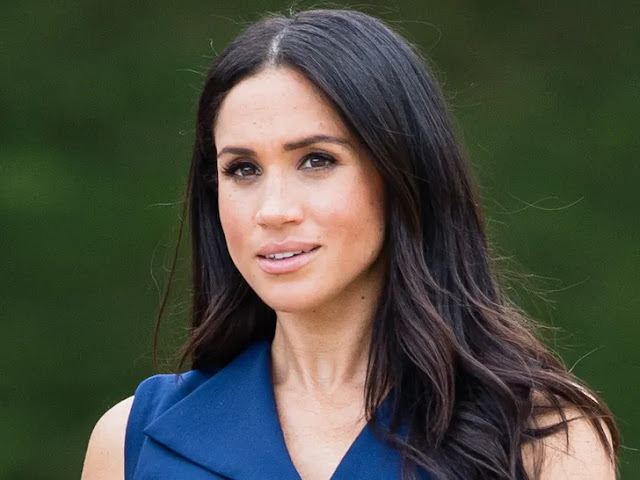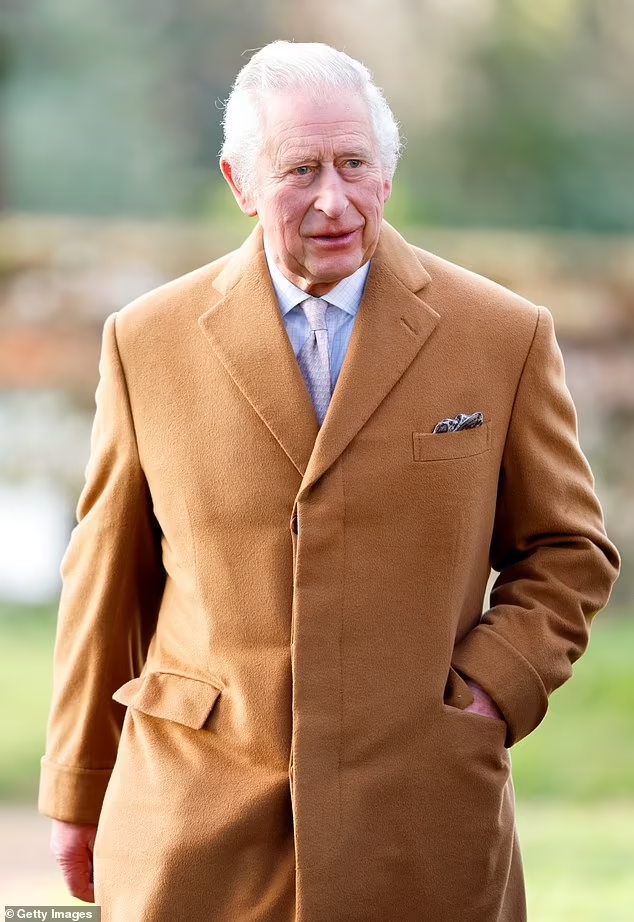JANE FRYER'S VERDICT on Prince Harry and Meghan Markle's Netflix series Polo
- Get link
- X
- Other Apps
It seems the Sussexes have taken yet another swing at carving out their niche in the entertainment world with Polo, a five-part docu-series exploring the high-stakes, high-glamour world of the sport. Whether or not this offering delivers on their ambitious promise to create “content that informs but also gives hope” is up for debate.
 |
Harry and Meghan's blink-and-you-miss-it appearance in Polo comes at the beginning of episode five, when Harry plays a charity polo match for his non-profit Sentebale |
Their journey so far has been marked by highs and lows. The Harry & Meghan Netflix docu-series gave audiences an intimate look into their lives and relationships with the Royal Family, drawing both acclaim and controversy. Harry’s Heart of Invictus documentary struck an emotional chord, shedding light on the resilience of wounded veterans. But other ventures, like the prematurely canceled Archetypes podcast and the long-teased (yet unproduced) Meghan cooking show, have struggled to gain traction.
 |
Harry and Meghan's $20million Archetypes podcast for Spotify was scrapped in 2023 after just 13 episodes
Now, Polo ventures into the rarefied world of the sport—known for its exclusivity, luxury, and allure. Whether viewers will find this latest project gripping or dismiss it as yet another glimpse into a privileged, insular lifestyle remains to be seen.
The Sussexes' drive to keep creating content is undeniable. But with so many of their ventures receiving mixed reactions, one wonders: will Polo elevate their brand, or will it simply serve as another lavish curiosity in their sprawling portfolio? Only time—and the ratings—will tell.
This cheeky critique of Polo paints the series as an earnest but unintentionally comical exploration of a sport steeped in privilege. From its promise of "dirty, sweaty, sexy boys – riding..." to the drama of a fuchsia-shirted rage and melodramatic declarations of life-or-death stakes, it’s clear the tone oscillates between high seriousness and unintentional absurdity.
The setting—a build-up to the Polo World Cup in Florida—introduces a cast of polished players and their admirers. The critique’s imagery of “very slim women with very smooth faces and less smooth necks” observing intensely focused athletes adds a dash of satire to the glamorous veneer of this elite world.
The players’ hyperbolic remarks, like equating the dangers of polo to firefighting or marine combat, risk alienating viewers who might find the comparisons overblown or tone-deaf. While such declarations may aim to highlight the intensity of the sport, they inadvertently underscore its disconnect from the realities most viewers face.
 |
Nacho Figueras and Delfina Blaquier with Meghan and Harry at the Royal Salute Polo Challenge benefitting Sentebale in April
For all its visual and narrative potential, the show appears caught between being a serious sports documentary and a juicy, over-the-top spectacle. Whether this blend intrigues audiences or prompts eye-rolls likely depends on how much they enjoy indulgent drama wrapped in polo mallets and Louis Vuitton.
This depiction of Polo leans heavily into its cast of characters, turning the sport’s glossy surface into a tableau of privilege, drama, and personality clashes. The series promises a behind-the-scenes look at the grit and glamour of polo, but it seems to focus just as much on the archetypal players and their outsized quirks.
We have Tim Dutta, the earnest, pampered golden boy caught between his love for the game and the weight of familial expectations. His overbearing father’s singular mantra—“We’re here for one thing and that’s to win”—might be intended to underscore the high stakes, but it instead edges toward caricature. Tim’s affection for his horses, however, adds a redeeming layer of authenticity.
Adolfo Cambiaso, hailed as the “Michael Jordan of Polo,” seems positioned as the legend of the sport, his prowess casting a long shadow over the narrative. But even this accolade risks being buried under the series' broader preoccupation with superficial glamor.
Then there’s Louis Devaleix, who appears tailor-made to be the series’ villain. With his ham-like biceps, cool-box rage, and utter indifference to his horses (“I don’t even know what my f***ing horses’ names are!”), he embodies the kind of flawed persona reality television thrives on. His antics, however, might leave viewers questioning how much of the sport’s integrity is being sacrificed for drama.
Amid dramatic music, luxury cars, and skydiving escapades, Polo seems more intent on showcasing a lifestyle than digging into the soul of the sport. For those who enjoy reality-style indulgence with a side of muscle-flexing and melodrama, it might be a fun watch. But for anyone hoping to truly understand polo as a sport—or find a deeper narrative—it risks feeling as hollow as a smashed cool box.
The critique of Polo as a project from Harry and Meghan offers biting commentary on what it could have been versus what it ultimately is. While the premise of pulling back the curtain on a sport steeped in drama, privilege, and spectacle had potential, the execution seemingly falls flat.
 |
Meghan planted a kiss on Harry after his team the Royal Salute Sentebale won the charity match featured in episode five of the docu-series
The show’s lack of depth and reliance on surface-level glitz—tight trousers, confetti-filled balloons, and absurd soundbites—positions it as an unintentional parody of itself. Lines like “He was hand-made by God to play polo” may elicit eye-rolls rather than admiration, while the exploration of polo’s mechanics (chukkas and horse changes) feels like a half-hearted attempt to educate amidst the chaos.
Harry and Meghan’s sparse on-screen presence further weakens the series' impact. Their roles as executive producers promised a personal lens or meaningful narrative, but brief cameos don’t provide the substance their names might suggest. While Meghan’s affection for the polo scene and Harry’s stated dream of showcasing the sport’s competitive edge could have lent authenticity, these intentions seem lost amid the shallow gloss.
The critique also raises important questions about the sport itself—its elitism, environmental footprint, and treatment of horses. These aspects could have formed a compelling counter-narrative, providing the "content that informs but also gives hope" that the Sussexes once promised. Instead, the show appears to dodge meaningful critique in favor of indulgence.
Ultimately, Polo seems to have missed its mark. With sharper direction and a willingness to lean into either guilty-pleasure entertainment or serious storytelling, it could have been a vibrant addition to the Sussexes’ portfolio. Instead, as the review aptly puts it, the series plods along, failing to inspire, inform, or entertain in the ways it could have.
- Get link
- X
- Other Apps



Comments
Post a Comment